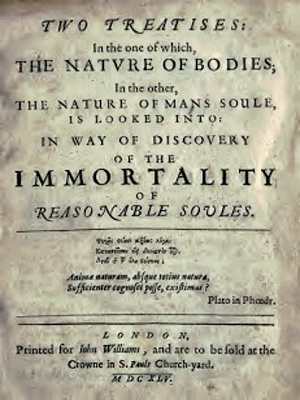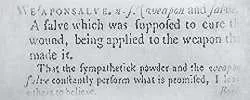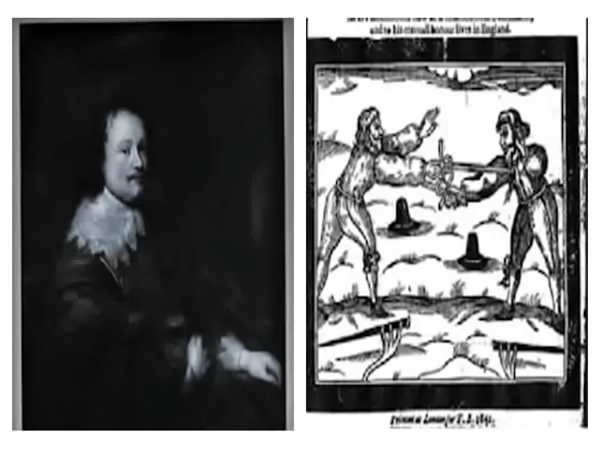The Daring Duel That Defined Sir Kenelm Digby’s Legacy
Sir Kenelm Digby was a remarkable figure in 17th-century England, known for his complex character, scientific curiosity, and loyalty to King Charles I. Digby, a favorite of the king, frequently found himself in the crosshairs of political turmoil due to his Catholic affiliations. In early 1640, the House of Commons summoned him to explain his connections with English Catholics. Digby appeared before Parliament three times, but his testimony failed to satisfy them. An address was sent to King Charles I, urging him to remove all Catholics from his court, specifically naming Digby. To avoid further embarrassment to the king, Digby returned to France, where his life took a dramatic turn.
The Duel That Defended a King’s Honor
In 1641, while dining with French nobles, Digby was confronted with an unexpected challenge. A nobleman, Count Mont de Ros, raised a toast to “the arrantest coward in the world,” and, after the toast was drunk, revealed he meant “your King of England.” Digby, initially stunned by the insult, held his composure and invited Mont de Ros to dinner the next day. At this gathering, Digby mirrored the previous toast, hailing “the bravest king in the world,” and, once the toast was drunk, announced he referred to the King of England, his royal master. Mont de Ros laughed and repeated his insult. Digby, in a controlled fury, leaned in and whispered, “I require a single combat of you, where either you shall pay your life for your sauciness, or I will sacrifice mine in the behalf of my king.”

The two men then stepped outside, stripped to their doublets, and engaged in a sword fight. They were evenly matched for three bouts, but in the fourth, Digby’s sword pierced Mont de Ros’s chest and exited through his neck, ending the duel. As dueling was illegal in France, Digby immediately sought the mercy of King Louis XIII. The French king, acknowledging the affront to his “Brother King” was unjustified, arranged an armed escort to ensure Digby’s safe passage back to England.
Imprisonment and Innovation in England
Upon his return, Digby’s involvement in the duel sparked outrage in Parliament. He was imprisoned at Winchester House in Southwark. Despite his incarceration, Digby continued to engage with influential figures, causing further jealousy among his adversaries. During his time in prison, he turned to scientific experimentation, developing innovations in glassmaking. Digby, who owned a glassworks in the 1630s, invented a stronger, more durable wine bottle made of green and brown glass, which better preserved the contents from sunlight. His inventions marked a significant advancement in glass production, and he filed patents for his creations.
A Peculiar Philosopher and Theories Ahead of His Time

While imprisoned, Digby also wrote “Two Treatises,” a book that explored a range of topics, from the nature of physical bodies to the immortality of souls. In the first treatise, written some 30 years before Isaac Newton’s theories, he discussed gravity, optics, motion, and atomism. One of his more eccentric ideas involved the “Powder of Sympathy,” a healing remedy proposed by Rudolf Goclenius in 1608. This powder was believed to heal wounds by being applied to the weapon that inflicted them or to a blood-stained bandage, regardless of the distance from the injury.
Digby’s enthusiasm for the powder extended beyond mere medicine; he suggested it could solve the maritime latitude problem. The idea was that if a dog, injured with a knife, was taken aboard a ship, and a timekeeper on land applied the powder to the knife or bandage at noon each day, the dog would howl in pain at the same moment. This would supposedly provide sailors with an accurate time reference to determine their position at sea.
A Mixed Legacy
Despite his contributions to science and philosophy, Digby’s unconventional ideas and loyalty to King Charles I earned him both admirers and critics. Figures like John Evelyn labeled him an “errant mountebank,” and Henry Stubbes dubbed him “the very Pliny of our age for lying.” However, Digby’s daring, intellect, and innovation continue to make him a fascinating figure in history, emblematic of an era marked by both enlightenment and superstition.

